EXCLUSIVE: She Survived a Death Camp. Facing Biden DOJ Charges, She Is Prepared to Die in Prison
Mary Margaret Olohan /
FIRST ON THE DAILY SIGNAL—Eva Edl turned 10 years old in a World War II-era death camp.
She believes she may die in a United States prison.
Charged by President Joe Biden’s Justice Department with violating the Freedom of Access to Clinic Entrances (FACE) Act, Edl faces up to 11 years in prison and $350,000 fines. She is about to turn 89 years old.
“When I was indicted, I began to prepare to die there,” she said thoughtfully in a phone interview with The Daily Signal. “Right now, I am ambivalent. … I’m doing the best I can to get ready. Haven’t talked to a funeral director yet.”
“I’m just being sensible,” she added. “There’s no guarantee that I survive it.”
Drawing on her brutal experiences with communism in what was then Yugoslavia, she refuses to underestimate those who have the power to oppress her, recalling how her mother couldn’t believe they were in danger until it was too late.
“We haven’t done anything wrong! Who would harm us?” she remembered her mother saying.
“Then our whole people was destroyed,” Edl said. “We hadn’t done anything wrong, as far as I know.”
As Danube Swabians, an ethnic German-speaking group, Edl and her family were rounded up in the aftermath of World War II by soldiers under the direction of Yugoslavia’s communist leader, Josip Broz, commonly known as Tito.
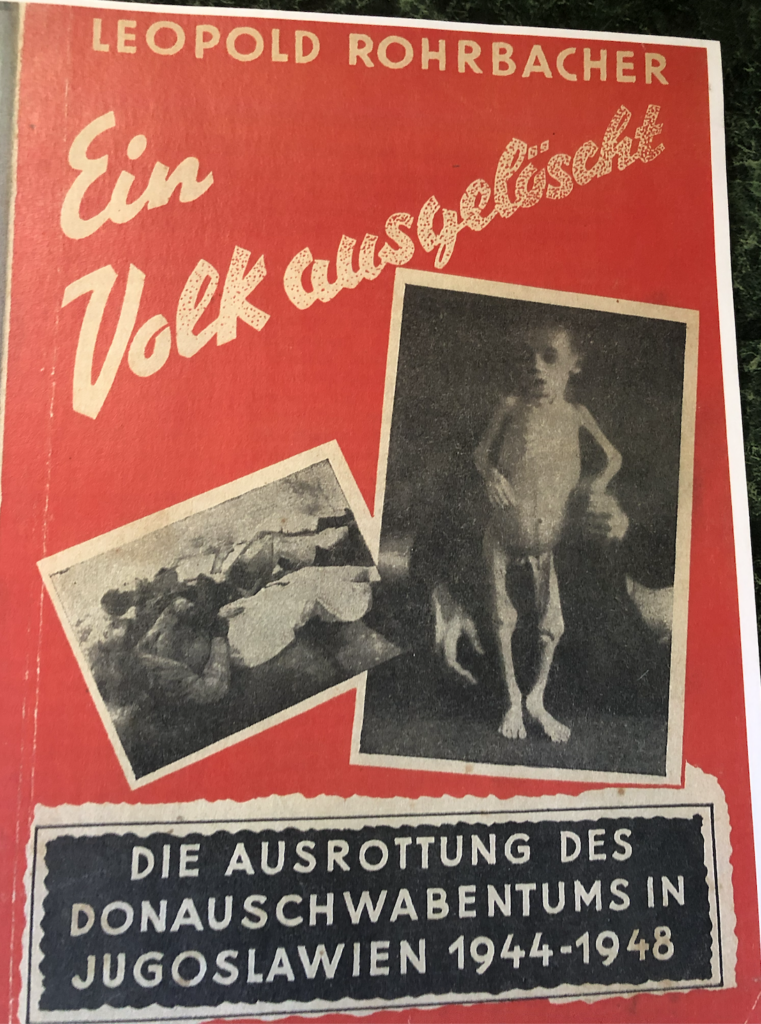
She described how she was shipped off in cattle cars to a concentration camp in Yugoslavia at age 9: “We were packed body to body, and being a small child, I could hardly breathe. We had no food, no water … .”
The camp (named Gakowa, or Gakovo, according to Edl) was “primitive,” she said, and its purpose was the extermination of the Danube Swabians. Many of those in Gakowa with Edl died from starvation or disease and were buried in mass graves.
She slept on straw. She had her one dress. Very little food.
“You couldn’t wash your clothes because all you have is that one dress,” she explained. “So, you were filthy. And then we had diarrhea, dysentery, typhoid, and rats and anything you could imagine, and we had no toilet facilities to contain all that. We had an outhouse. Well, how do you have masses of people with diarrhea just go to one outhouse? So, you know what happened. And filth and disease went rampant.”
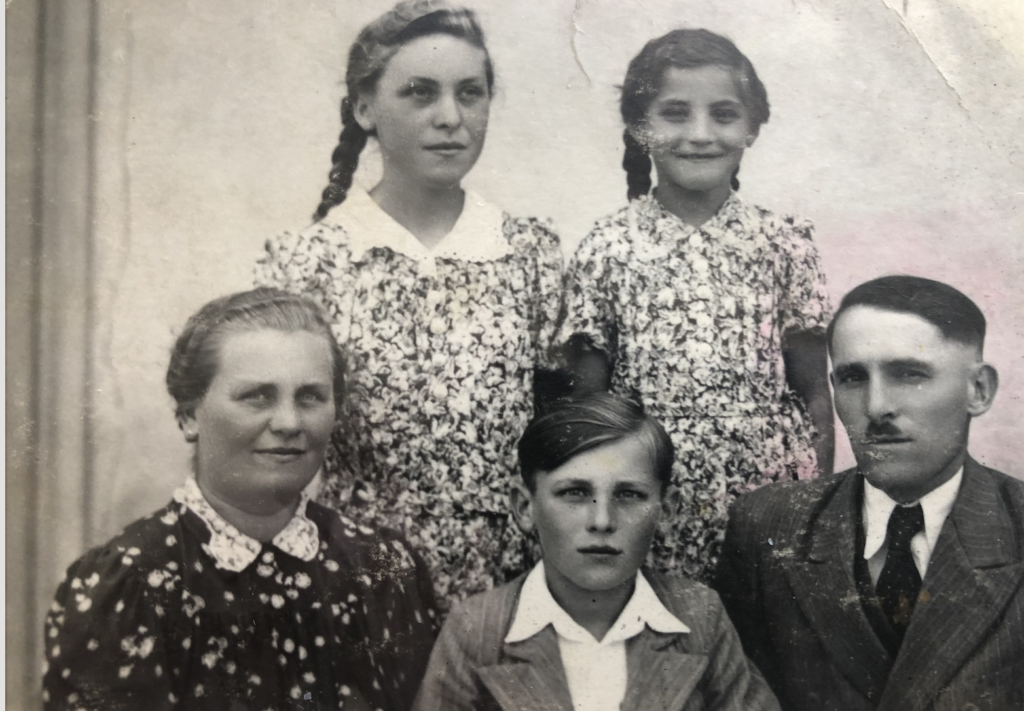
Her mother, forced to work as a slave laborer in the fields, escaped and smuggled herself into the camp in a wagon full of corn, determined to find her young daughter among the thousands of prisoners, Edl says. Soldiers poked through the load of corn with bayonets, just barely missing her mother.
Edl’s mother finally found her young daughter lying on a pile of rancid straw, starving, too weak to walk, “festering” with lice and other creatures.
The scene was so horrific that it caused Edl’s mother to rush outside and vomit, although Edl did not learn this until years later. At the time, she was so weak she could barely register her mother’s presence, and she could scarcely recognize her mother, thin and emaciated as she was. But it seemed to Edl a miracle that they had been reunited—even in a concentration camp.
“I just couldn’t believe it was her,” she explained. “It took a while.”
Edl’s stories of her time in the death camp feature many brave women: her grandmother, who voluntarily chose to go to the concentration camp with her in order to protect her; her mother, who repeatedly risked death to reunite her children and get them safely to the United States; and her sister, who, forced by a soldier to dig her own grave, looked him in the eye and dared him to kill her. (He didn’t, according to Edl.)
So, it should come as no surprise that Edl, after she came to the United States in 1955 and was exposed to a human rights crisis she had never before heard of, decided that she must do whatever was in her power to save lives.
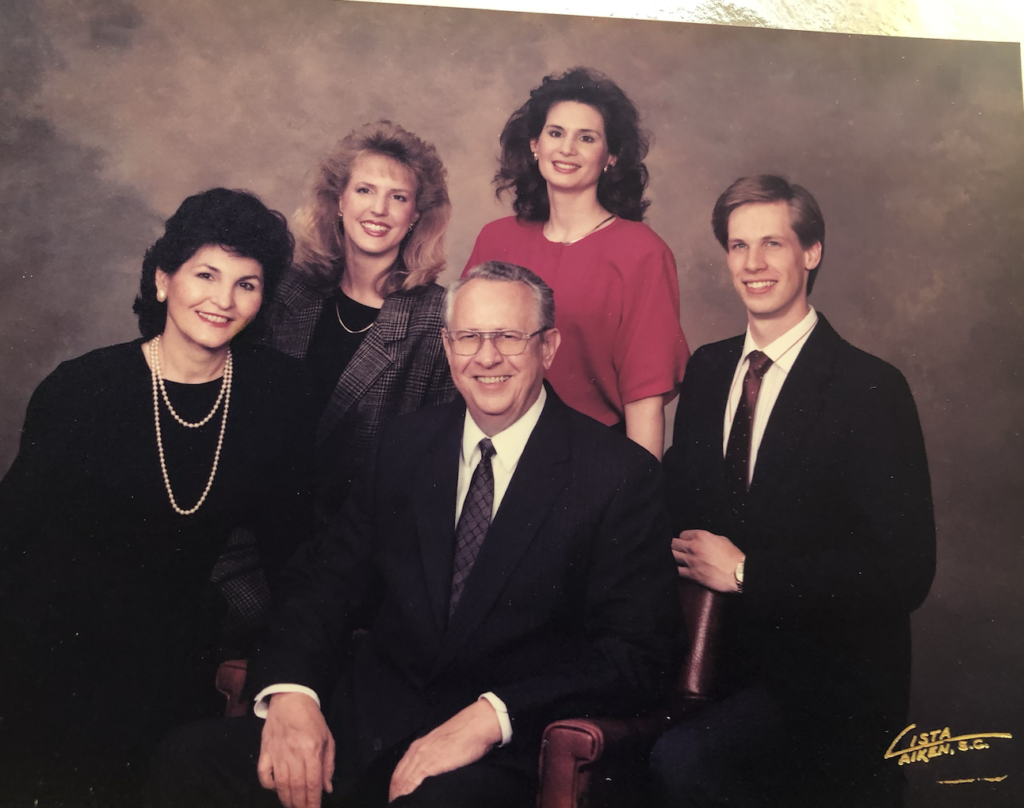
Edl took an English course around 1968, and during the course, someone brought up whether or not the United States should legalize abortion. (Roe v. Wade, the landmark decision in which the Supreme Court ruled that there was a constitutional right to abortion, did not come about until 1973.)
“I didn’t know what [abortion] meant,” Edl said. She was blown away by the explanation she received. As she spoke with The Daily Signal, she reflected that an unborn baby is not a tumor, but a life. No one should have the ability to just end a baby’s life, she said.
“I tried to speak up in that subject, but I must have done a very bad job because I don’t think I convinced the person that I was speaking with. And after that, I just brought the subject up all the time because it bothered me that people would actually think of killing their own children.”
During the 1988 Democratic National Convention in Atlanta, she first learned that abortions don’t take place in a secretive, underhanded fashion; rather, that unborn babies are aborted within abortion clinics, places that openly advertise their gruesome services. Edl was shocked.
Hundreds of pro-life protesters demonstrated outside the convention beginning in July 1988. In October 1988, police arrested about 400 protesters in connection to those demonstrations, The New York Times reported.
It was during that time period, after discussing the matter with her husband and getting his blessing, that Edl joined the protesters as they prayed outside an abortion clinic in Atlanta and attempted to dissuade women from going inside and aborting their babies.
“We are doing what we are condemning others for,” Edl says she told her husband at the time. “This is what people should have done for us.”
She was arrested that day with many others, led by Operation Rescue leader Randall Terry.
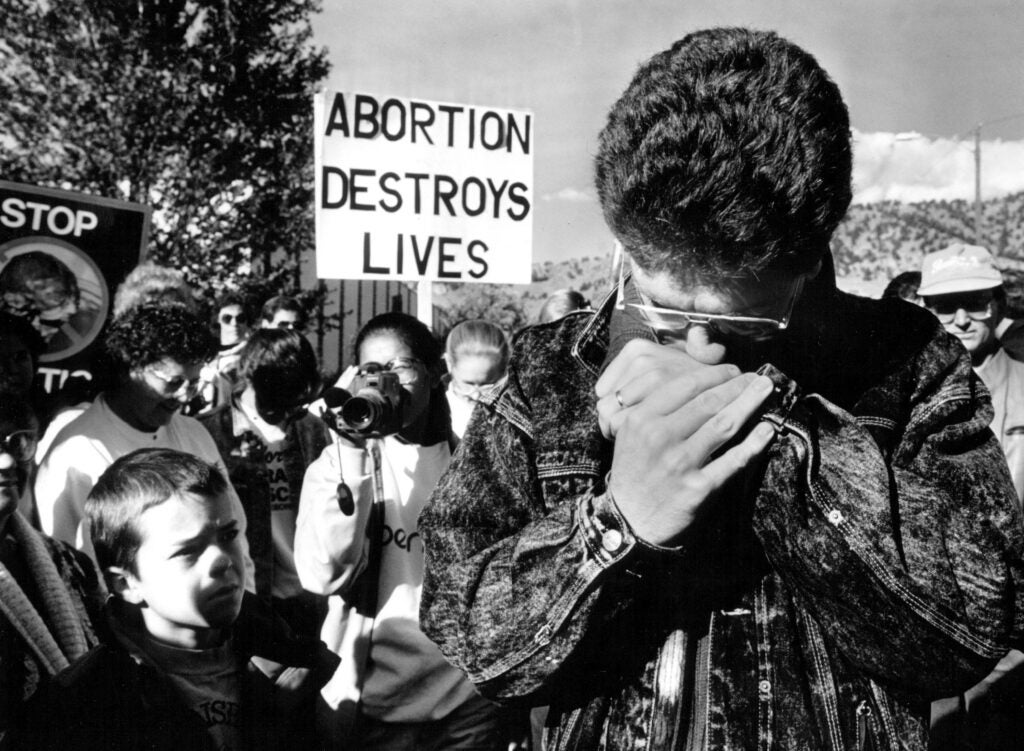
Edl says the police treated them brutally, dislocating the arms of many of the protesters arrested. The pro-life activists had been warned that police were prepared to be brutal, she explained, and to avoid any appearance of accosting police, the activists crawled on their knees rather than walked.
“I was weeping the whole time,” she said. “I must have left a trail of tears … .”
She was inconsolable that America would even consider aborting its unborn.
“America, in my eyes, was this country of justice and opportunity and everything that is good,” she said. “A beacon for us, over there, that didn’t know what all that meant, because we had nothing but oppression from whoever was ruling us at the time.”
When an officer put his hand on her shoulders, she froze, as she had been instructed.
“I heard somebody say, ‘Just use your nightstick,’ and I thought, ‘Oh, Lord, here they come. They’re going to club me.’ They just put the club, the nightstick, behind my arms. They hung me on it and nearly dislocated my shoulders, and just threw me on the bus. Other people got their shoulders totally dislocated; others got their heads bashed in. Some ended up in the hospital.”
That was her first “rescue”—the term that pro-life activists use for their attempts to stop abortions from taking place at an abortion clinic. Under the FACE Act, such activity is considered a crime.
The FACE Act prohibits use of force, obstruction, or property damage intended to interfere with “reproductive health care services.” Though it theoretically protects houses of worship and pregnancy resource centers, as well as abortion clinics, the Biden administration’s Justice Department has largely used FACE to prosecute pro-life activists like Edl.
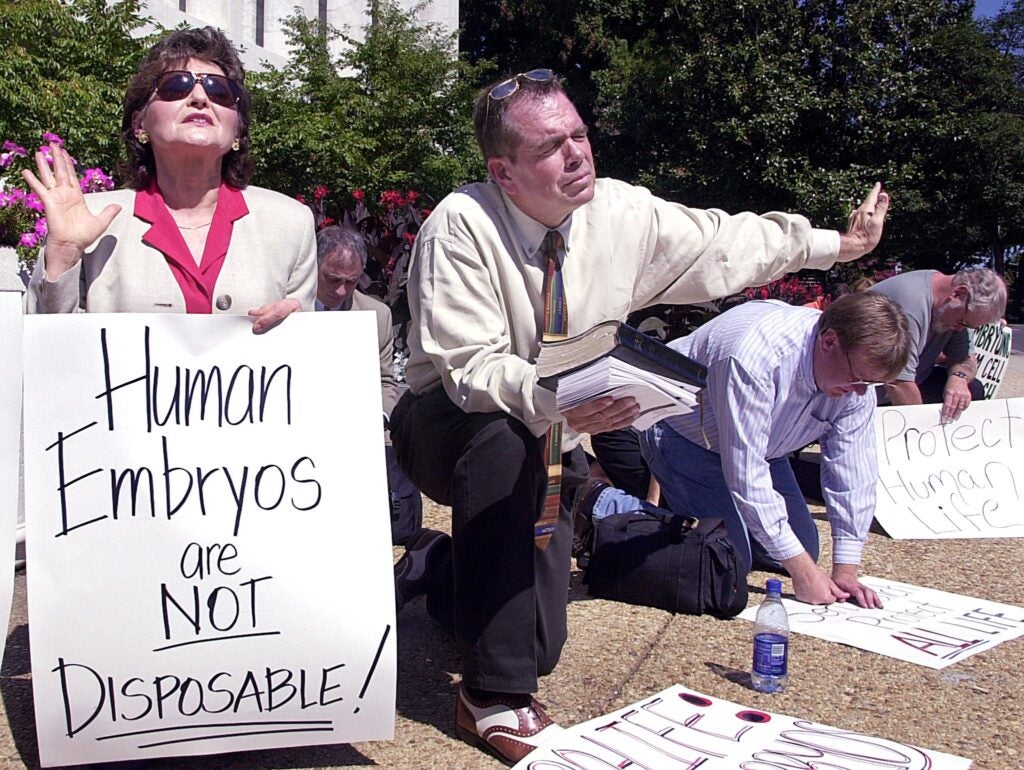
Since 2022, the year the Supreme Court overturned Roe v. Wade, the Justice Department has hit a total of 40 pro-life activists with FACE-related charges at five different rescues, or “blockades” as the DOJ calls them.
Edl describes a rescue in the following way: “We would put our bodies in front of the entrance of the abortion clinic, which I call the ‘death camp,’ so nobody could come in and kill the babies.”
Since that October 1988 incident, Edl says, she has been part of more than 50 rescues throughout the United States. She also says that she has been arrested about 50 times.
Now, she faces prison time.
“To the best of my knowledge, I am facing around 11 years in prison and $350,000 fines,” she said.
The Justice Department has thrice charged Edl with violating the FACE Act, first for an “August 2020 blockade” of a Sterling Heights, Michigan, abortion clinic; second for an April 2021 “blockade” in Saginaw, Michigan; and third for a March 2021 incident at a Nashville, Tennessee, abortion clinic. The DOJ charged eight defendants in the Sterling Heights incident and 11 defendants in the Nashville incident.
Edl maintains that she never committed any violence against those at the abortion clinics. (The DOJ would not respond to requests for comment about its charges against her.) She says that her actions are completely justified, given that she is trying to save the lives of babies about to be aborted.
“Let me liken it to something,” Edl explained thoughtfully as we discussed her arrests around the country. She referred back to her time in Gakowa. “When we were rounded up to be killed, we were placed in cattle cars, and our train was headed toward the extermination camp. What if citizens of my country would have overcome their fear, and a number of them stood on those railroad tracks between the gate of the entrance to the death camp and the train? The train would have to stop. And while the guards on those trains would be busy rounding up the ones that were in front of the train, another group could have come in, pried open our cattle car and possibly set us free, but nobody did.”
She has heard stories that people stood by the roadside and wept as the cattle cars went by. “But that didn’t help us any,” she said.
“So, when we place our bodies between the woman and the clinic, we buy time to get our sidewalk counselors the opportunity to speak with women, and hopefully open their hearts with love for their babies and let their babies live,” the death camp survivor said.
“After all,” she added, “we offer them everything there is, including adoptions. I’ve offered to adopt babies on the spot … we’re standing between the killer and the victim.”
Congress passed the FACE Act in 1994, and then-President Bill Clinton signed it into law that same year. Spearheaded by the now-deceased Sen. Ted Kennedy, D-Mass., the legislation was a response to attacks on abortionists and abortion clinics. Pro-life advocates made sure that the legislation included clauses stating that it also protects churches and pregnancy resource centers.
In recent months, some conservative lawmakers and activists have called for the legislation to be repealed, arguing that it has been weaponized against pro-life activists.
They point to the large number of DOJ FACE charges against pro-life activists, noting that hundreds of churches and pregnancy resource centers have been attacked by pro-abortion vandals since the May 2022 leak of the draft Supreme Court opinion indicating that Roe v. Wade would soon be overturned. The DOJ has charged only five pro-abortion vandals in connection with attacks on Florida pregnancy centers and an Ohio pregnancy center.
It appears that no vandals have been charged with FACE for attacking churches.
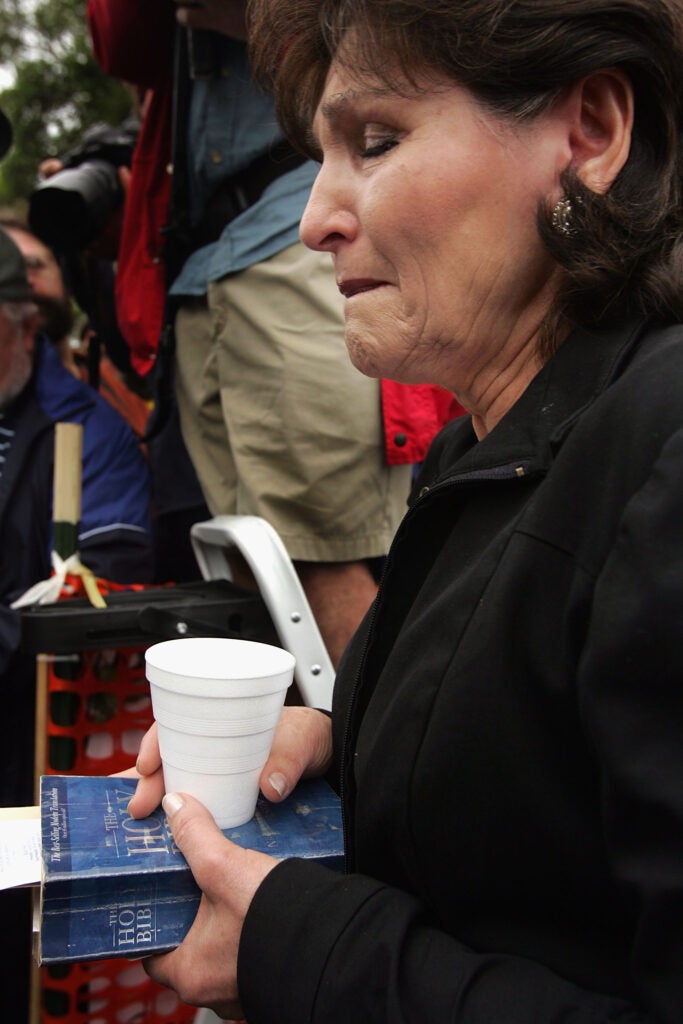
Edl, who has followed the FACE Act and its application since its inception, said she was arrested in Kennedy’s office when she went to talk to him about it in the 1990s.
“Instead of talking to us, he had us arrested,” she said of Kennedy.
She believes that she and her fellow pro-life activists are being targeted through the FACE Act because they “are in the way of [the Biden administration’s] agenda.” She has lived through 13 presidents in her lifetime, and she says that Biden is the worst of them.
Edl and the other defendants accused of violating the FACE Act have said that they are not allowed to show images or pictures in their trials. They are not allowed to say that they acted in order to save lives—the lives of unborn babies.
At the end of the day, however, she seems very at peace about the possible penalties. She’s getting her affairs in order. She had a bench trial in federal court in Nashville, where a federal judge found her and several others guilty of violating the FACE Act.
Edl and the other three defendants face a maximum of six months in prison, five years of supervised release, and fines of up to $10,000 in this case, according to the U.S. Attorney’s Office for the Middle District of Tennessee.
She will be sentenced July 30, she said. And her next trial is in federal court in Detroit on Aug. 6.
“I feel very strongly, because of my background, that human life is sacred,” she said simply. “Government does not have the authority to permit what God forbids.”
“And murder is forbidden by God.”
